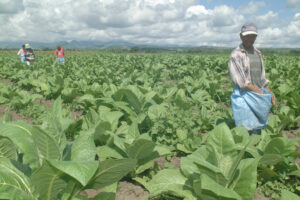Tobacco exports seen growing with FTAs, removal of non-tariff barriers
THE PHILIPPINES will need to leverage free trade agreements (FTAs) and address non-tariff barriers to help grow the tobacco industry, the Department of Trade and Industry (DTI) said. At the International Tobacco Agricultural Summit, Bureau of International Trade Relations Director Marie Sherylyn D. Aquia said FTAs will play a crucial role in strengthening the industry […]

THE PHILIPPINES will need to leverage free trade agreements (FTAs) and address non-tariff barriers to help grow the tobacco industry, the Department of Trade and Industry (DTI) said.
At the International Tobacco Agricultural Summit, Bureau of International Trade Relations Director Marie Sherylyn D. Aquia said FTAs will play a crucial role in strengthening the industry by improving market access.
“FTAs also support legitimate trade and enhanced trade cooperation. FTAs also secure preferential tariffs and clear rules, which can improve the competitiveness of the industry,” she said last week.
“However, it is important to note that global trends are increasingly focused on public health considerations, which may impact the tobacco trade,” she added.
She also cited the need for separate international cooperation efforts to address illicit trade issues.
According to the DTI, the non-tariff barriers faced by the industry include stringent packaging and labeling requirements, import restrictions and quotas, excise taxes and price controls, as well as technical barriers to trade and environmental regulations.
“These measures, while often aimed at public health concerns, can create challenges for our Philippine tobacco exporters,” she said.
Meanwhile, she said that the markets with growth potential for Philippine tobacco exports include Japan, Switzerland, Norway, Iceland, and the South Korea.
“We do have free trade agreements with all of these countries, but of course, we aim to continue to improve market access for our exports of goods and services,” she said.
“By leveraging FTAs and addressing the non-tariff barriers through various international engagements, the Philippines can continue to enhance its tobacco industry’s position in the global market while navigating the evolving regulatory landscape,” she added.
Exports of unmanufactured tobacco declined 14.2% to 17.8 million kilograms in 2024 and fell 6.5% by value to $94.59 million, according to the National Tobacco Administration. — Justine Irish D. Tabile


















